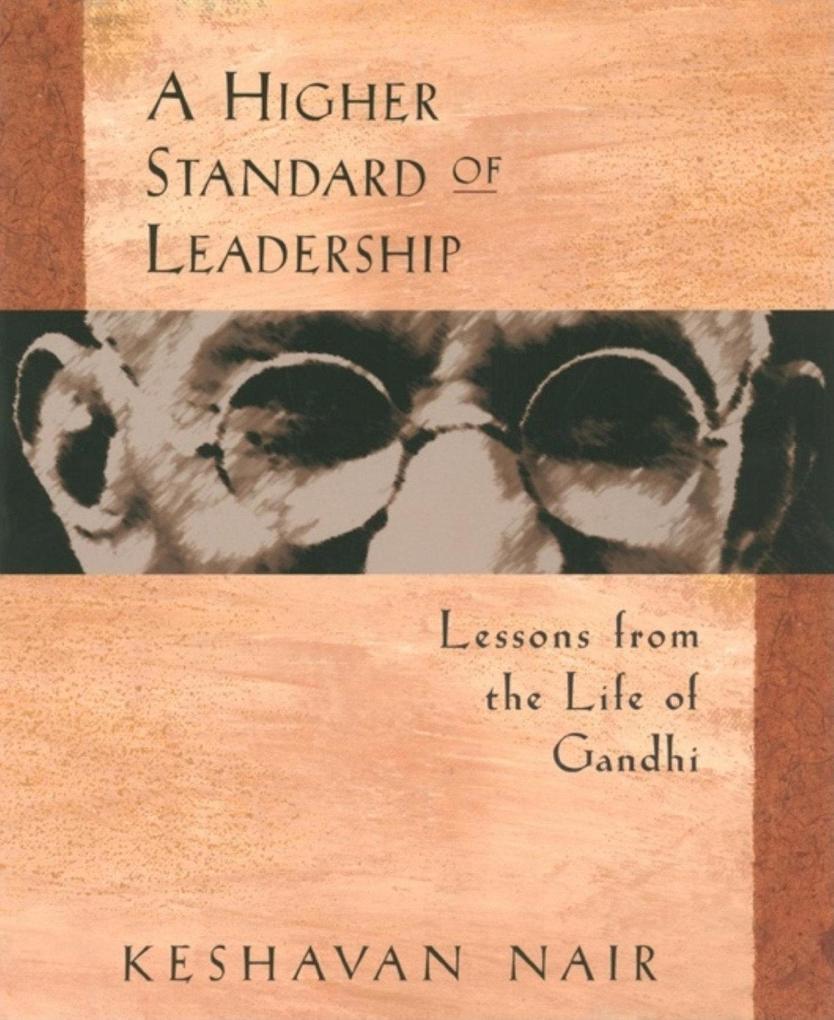Though Gandhi is one of the most written-about figures of the twentieth century, this is the first book to apply lessons from his life to the practical tasks faced by contemporary leaders-from corporate managers and executives to government administrators, nonprofit professionals, educators, and others.
In times shaped by colonialism, dictatorships, and two World Wars, Gandhi demonstrated that an idealist could also be a practical and effective leader. In our times of increasing cynicism about the quality of leadership we can expect and aspire to, Keshavan Nair reminds us that, "We are all engaged in leadership, in practicing it and selecting those who will lead." In A Higher Standard of Leadership, he offers a pragmatic guide based on the concepts Gandhi exemplified:
o leadership is service, not a path to power and privilege;
o effective goals, decisions, and strategies can be guided by moral principles;
o a single standard of conduct, based on absolute values, should be maintained in both public and private life.
A lifelong student of Gandhi's teachings and a businessman with more than 25 years of experience in corporate and governmental leadership development, Nair is uniquely positioned to bridge the two worlds. Using illustrative examples from Gandhi's life and writings, he identifies commitments-to conscience, openness, service, values, and reduced attachments-and describes the courage and determination necessary to work and lead by them. In simple and direct language, he explores the process of making decisions, setting goals, and implementing actions guided by the spirit of service and commitment to values that is essential to the realization of a higher standard of leadership in our workplaces and communities.
Inhaltsverzeichnis
Part I: A Single Standard of Conduct
1. Why a Single Standard
2. Develop a Basis for the Single Standard-Commit to Absolute Values
3. Acknowledge the Ideal-Commit to the Journey
4. Develop the Guide That Will Keep You on the Path-Commit to Training Your Conscience
5. Reduce Forces That Lead You Astray-Commit to Reducing Privilege and Attachments
6. Be Willing to Stand Scrutiny-Commit to Minimizing Secrecy
7. The Essential Quality--Courage
Part II: The Spirit of Service
8. Leadership Is Service
9. Focus on Responsibilities Not Rights
10. Values Based and Policy Based Service
11. A Personal Commitment to Service
12. Understanding the Needs of the People You Wish to Serve
13. Power and Service in Harmony
Part III: Decisions and Actions Bounded by Moral Principles
14. The Moral Dimension in Decisions and Actions
15. Principles of Governance
16. Creating Integrity in the Decision Process
17. Changing the Standard for Decision Making
18. Bringing a Moral Dimension to Implementation










